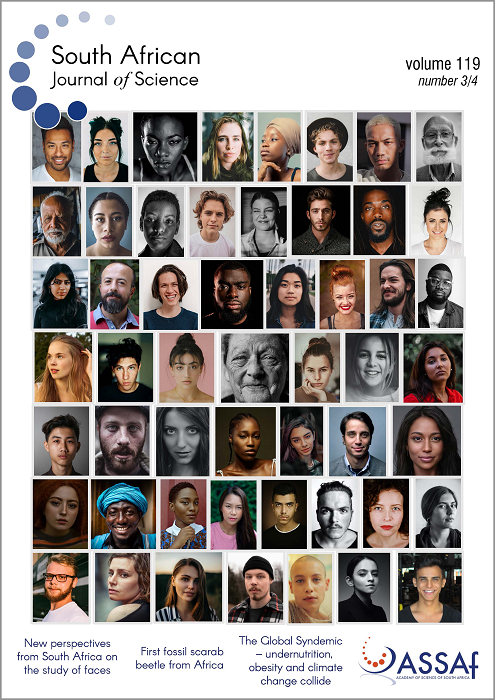Changes in the own group bias across immediate and delayed recognition tasks
DOI:
https://doi.org/10.17159/sajs.2023/12126Keywords:
own group bias, own race bias, face recognition, encodingAbstract
Face recognition is biased in favour of in-group identity, particularly strongly for race or ethnicity but to some extent also for sex and age. This ‘own group bias’ (OGB) can have profound implications in practical settings, with incorrect identification of black suspects by white witnesses constituting 40% of criminal exonerations investigated by the Innocence Project. Although authors have offered several explanations for the OGB in face recognition, there is little consensus, apart from the acknowledgement that the bias must reflect perceptual learning history. One matter that is not currently clear is whether the bias occurs at encoding, or at retrieval from memory. We report an experiment designed to tease out bias at encoding, versus bias at retrieval. Black and white South African participants encoded 16 target faces of both the same and other race and gender, and attempted immediately afterward to match the target faces to members of photograph arrays that either contained or did not contain the targets. After a further delay, they attempted to identify the faces they had encoded from memory. Results showed a strong crossover OGB in the delayed matching task, but an asymmetrical OGB at retrieval (only white participants showed the OGB). Further investigation of recognition performance, considering only images correctly matched in the delayed matching task, showed a narrowly non-significant OGB at retrieval, but the investigation was likely not sufficiently powered to discover the effect, if it exists.
Significance:
- We demonstrate the presence of a crossover OGB in face recognition in a sample of black and white South Africans in a delayed matching task (a measure of encoding).
- Our findings show that the OGB may change rapidly. In the present study, the OGB took a crossover form at retrieval immediately after encoding, but was asymmetrical when assessed shortly afterwards.
- We used a novel approach for disentangling effects at encoding and at retrieval, but do not provide clear evidence to distinguish whether the OGB is a failure of encoding or of memory retrieval.
Published
Issue
Section
License

All articles are published under a Creative Commons Attribution 4.0 International Licence
Copyright is retained by the authors. Readers are welcome to reproduce, share and adapt the content without permission provided the source is attributed.
Disclaimer: The publisher and editors accept no responsibility for statements made by the authors
How to Cite
- Abstract 357
- PDF 714
- EPUB 139
- XML 192












.png)